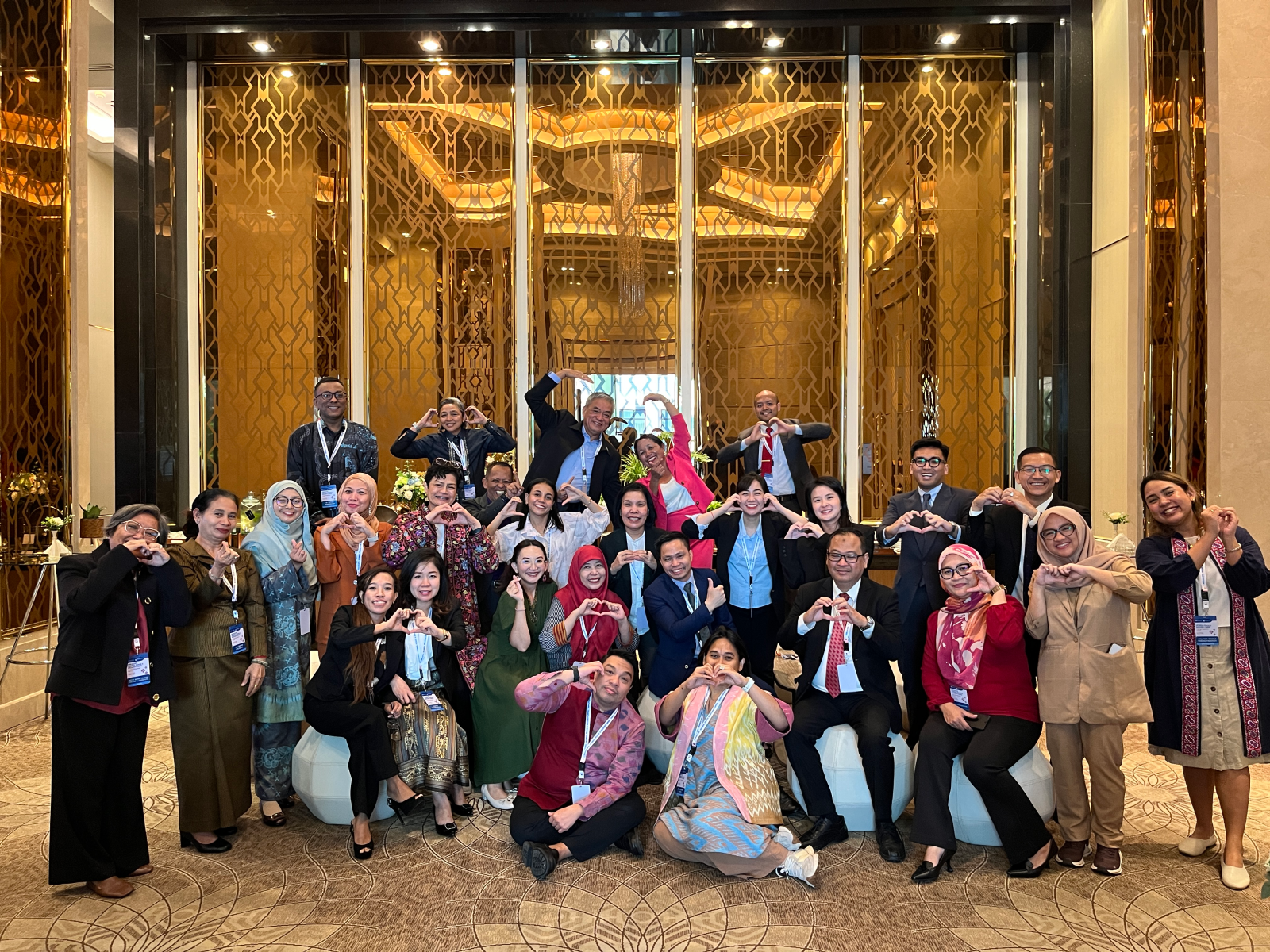ASEAN-IPR Women, Peace And Security (WPS) Training Programme, Module 3
“Women are not just victims, they are peacebuilders”. This has been one of the key takeaways following a simulation of a Mediated Peace Negotiation, as an essential part of the Women, Peace and Security (WPS) Training Programme, Module 3, organised by the ASEAN Institute for Peace and Reconciliation (ASEAN-IPR). The Training was convened 17-19 June 2025 in the heart of Bangkok, Thailand. Module 3 Training built on from Modules 1 & 2 of the Training conducted last year which was aimed at mid-level government officials. Participation was noted 20 in-person and 2 online participants consisting of senior level officials coming from relevant ministries and government agencies responsible for defence and security of ASEAN Member States and Timor-Leste.
With senior level officials being participants, the Training was thus conducted through an engagement-based learning – designed to actively involve participants in the learning process such as group discussions, case studies, simulations, role plays and other activities which encourages participants to think, interact and apply learned concepts in relevant contexts.
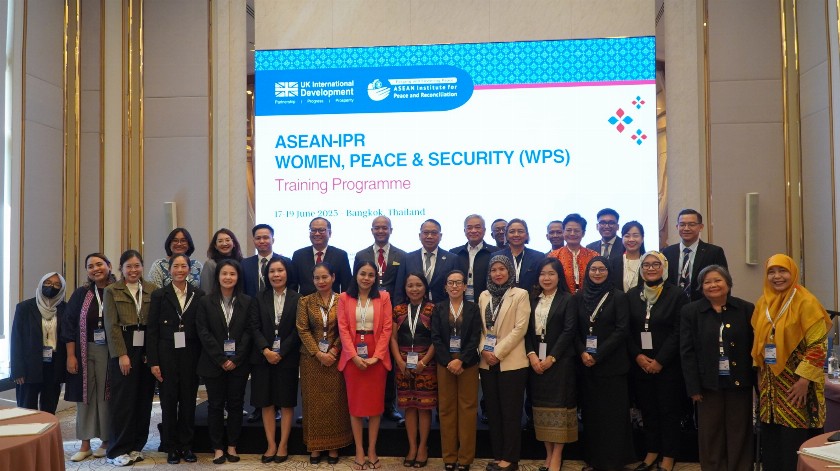
It “was an eye-opening experience that highlighted the complexities of modern conflict and the importance of inclusive, and gender-responsive peacebuilding. It offered a rare opportunity to learn directly from experts and participants about the status and roles of women across ASEAN, enriched by their diverse cultural perspectives. Beyond deepening my understanding of women’s roles in conflict resolution, I also valued the camaraderie bult over the three-day programme. While much remains to be done to advance the inclusion of women in Southeast Asia, ASEAN-IPR is playing a vital role in fostering dialogue and equipping participants with relevant policy and negotiation skills to advocate for gender equality in their home countries,” a participant testified of the Training.
Officiating the Module 3 Training was Mr. I Gusti Agung Wesaka Puja, Executive Director of ASEAN-IPR. He highlighted the Institute’s role in spearheading numerous gender-mainstreaming and WPS activities; where this year alone has seen the “National Action Plan (NAP) WPS Academy II”, “Regional Symposium and Capacity Building for Women in Peace Processes”, and completion of policy research on advancing gender-responsive conflict and crisis prevention in ASEAN. He underscored that the ASEAN-IPR WPS Training Programme aims to develop a network of WPS experts and professionals skilled in gender-responsive conflict resolution and peacebuilding, equipped with practical tools and strategies for integrating WPS into policy and programme design. Accordingly, ASEAN-IPR aspires to establish standardised WPS training programme that mainstreams WPS pillars into national policies and community initiatives.
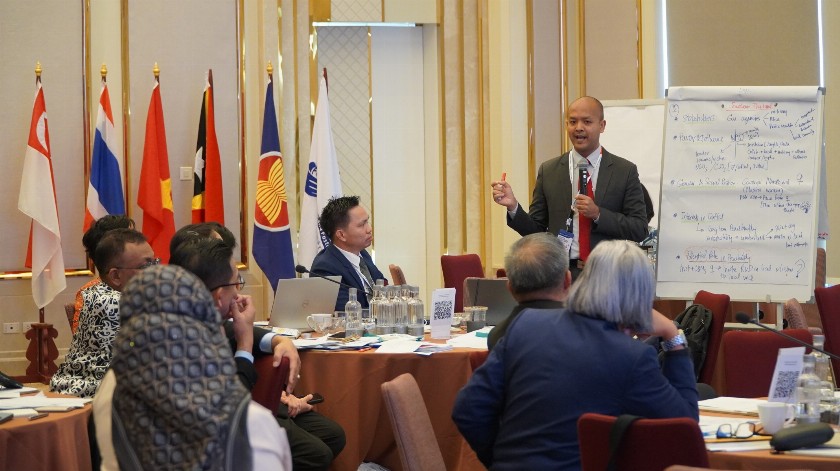
Continuing from the previous Modules Training, this 3rd Module Training was also made possible with generous support of the UK Mission to ASEAN and the Foreign, Commonwealth and Development Office (FDCO). Speaking on behalf of the UK Mission to ASEAN, Mr. Equilibrium Tampubolon underlined that “focusing on women provides a baseline on inclusion, justice and sustainable peace.” He further acknowledged that the work of mainstreaming WPS doesn’t stop at having National Action Plans (NAPs) but need to continue on until women are meaningfully represented in all aspects of peace and security.
The initial day of the Training began with Module 0 – namely overview of the WPS Agenda. This was followed by insights on peace processes, mediation and inclusive political negotiations – laying the foundation for deeper learning throughout the programme. “The absence of justice, prevalent impunity, and the lack of women’s voices and representation in mediation, negotiation and peace processes underscore the work still to be done. I firmly believe that women bring unparalleled compassion and insight to these efforts,” stated Ms. Leonesia Tecla Da Silva, one of the Trainers/Experts from Timor-Leste, who is also a Member of the Southeast Asian Women Peace Mediators.
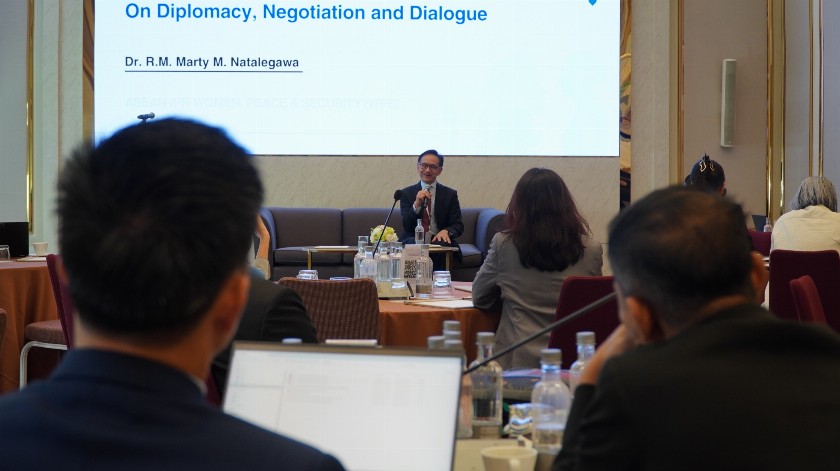
The second day started with a masterclass on diplomacy and negotiations. The Training had the honour to welcome H.E. Dr. Marty Natalegawa, former Indonesian Minister for Foreign Affairs (2009-2014) and Founder/Convenor of the Amity Circle – where he shared strategic steps and dynamics that affect efforts during negotiations and dialogue. He also highlighted some best practices from the region, where the openness of a country-state makes way to facilitated peace negotiations and/or processes.
Further in the 2nd day, participants we given the basis in designing consultative and inclusive WPS policies and peace processes; as well as best practices in integrating WPS in mediation, conflict prevention, conflict resolution and peacekeeping at the global level. One guest session featured Dr. Sintiki Tarfa Ugbe, the Director of Humanitarian and Social Affairs at the Economic Community of West African States (ECOWAS) Commission, where she shared the mechanisms and policies in ECOWAS that has incorporated WPS agenda.
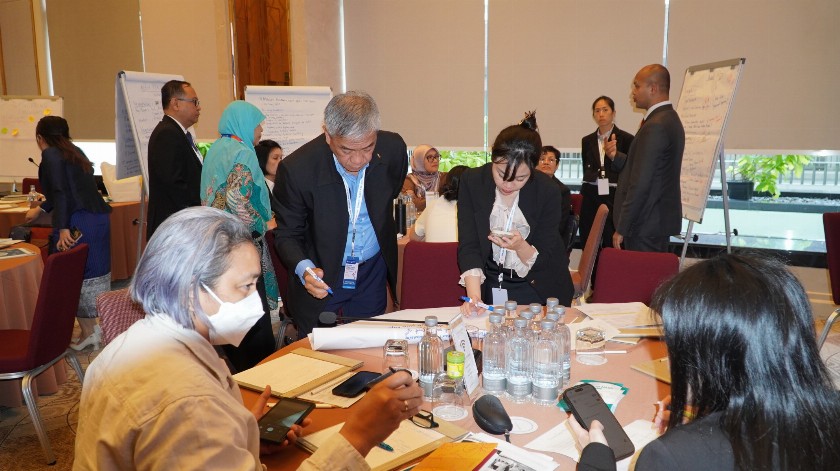
“I really appreciate being part of this forum. I have many questions and reflections to share on how we can inspire women and strengthen their voices through international cooperation,” said Pol. Lt. Col. Niyom KASENG from Thailand. He further remarked, “as a Police Officer, I’ve been exposed to new perspectives through this training. I believe these experiences will lead to meaningful conversations and new suggestions among my colleagues. The module is quite challenging, but every activity has been truly rewarding, it's wonderful to see such meaningful participation from people across so many countries.”
The third and final day was packed with active exercises for participants to apply the concepts introduced from the previous two days. This included simulation of a mediated/facilitated peace negotiation and World Café on various concepts to mainstream the WPS Agenda and its pillars to possible policy and/or action points.
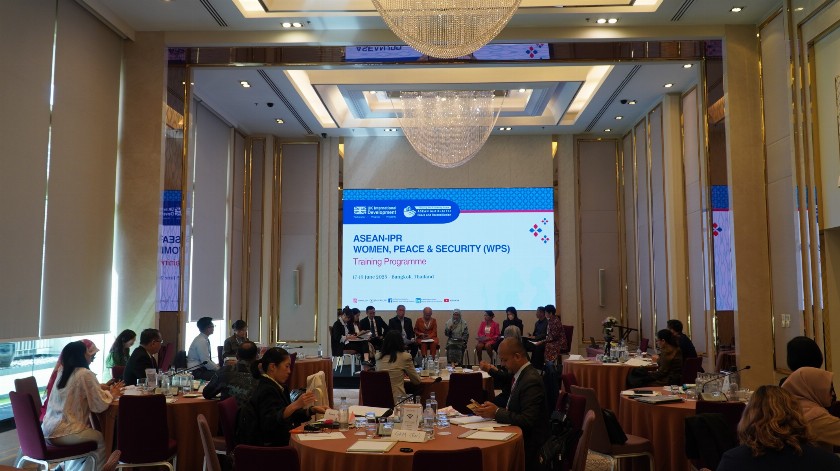
Capt. Venus G. Gualdaquever highlighted that “Although I’m a senior officer with years of experience, this [Training] has allowed me to gain new insights through the diverse perspectives of colleagues from different countries and backgrounds. To sum up these three days, I believe it is always better to be inclusive, embracing ideas from others helps us build a more complete and balanced understanding, especially when it comes to integrating the Women, Peace and Security Agenda into conflict and resolution frameworks. I truly hope these kinds of capacity-building activities will continue.”
The ASEAN-IPR wish to acknowledge Module 3 Trainers/Experts, namely Ms. Bianca Pabotoy (Lead Coordinator/Trainer, Formerly with the Global Network of Women Peacebuilders (GNWP)), Ms. Debbie Affianty (Universitas Muhammadiyah Jakarta), Atty. Marie Cleofe Gettie Sandoval (Faculty, School of Law, Ateneo de Manila University; Former Undersecretary of the OPAPP, Philippines), Ms. Leonesia Tecla Da Silva and Dr. Sintiki Tarfa Ugbe (Director of Gender and Child Development, Youth, Sports, Employment, Civil Society and Drug Control, ECOWAS Commission).
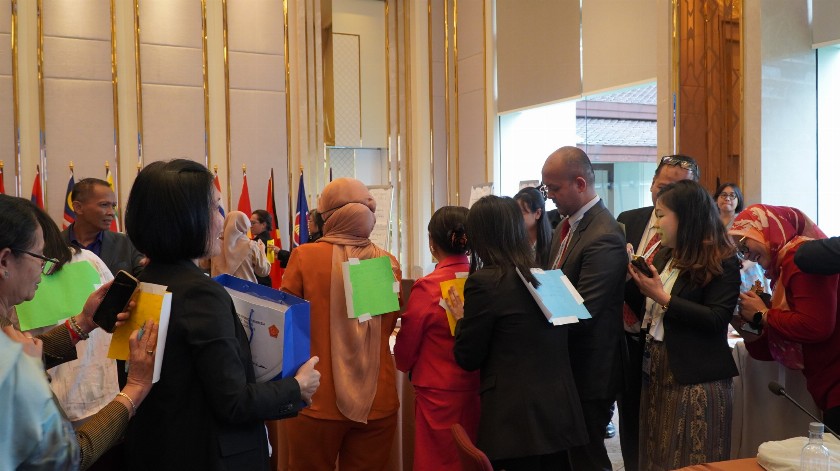
Be sure to stay connected with ASEAN-IPR through our Website (http://asean-aipr.org) and our Digital Database on Women in Peace Processes (http://womeninpace.asea-aipr.org), as well as our social media platforms, to dive deeper on our work on WPS and opportunities to participate in future activities of the Institute.
*******




